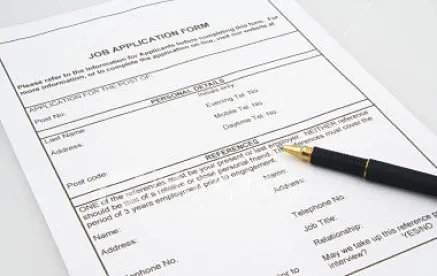Both California and the City of Los Angeles have enacted regulations effective July 1, 2017 governing employer use of applicant and employee criminal history in making employment decisions. Below we summarize these upcoming changes as well as the City of San Francisco’s ordinance already in effect.
New California Regulations
The California Fair Employment and Housing Council (“FEHC”) adopted new regulations limiting the ability of employers to consider criminal history when making employment decisions. These new regulations prohibit employers from using criminal records or information regarding criminal history in employment decisions if doing so would have an adverse impact on individuals in a legally protected class designated by the Fair Employment and Housing Act (“FEHA”) unless the employer could establish the practice was job-related and consistent with business necessity. Even then, an employer could still face liability if the adversely impacted applicant or employee is able to demonstrate an effective and less discriminatory way of achieving the business necessity.
To establish job-relatedness and business necessity, an employer must demonstrate that the policy or practice is appropriately tailored, taking into account at least the following factors:
(A) The nature and gravity of the offense or conduct;
(B) The time that has passed since the offense or conduct and/or completion of the sentence; and
(C) The nature of the job held or sought.
Demonstrating that a policy or practice of considering conviction history in employment
decisions is appropriately tailored to the job for which it is used as an evaluation factor requires that an employer either:
(A)Demonstrate that any “bright-line” conviction disqualification or consideration (that is, one that does not consider individualized circumstances) can properly distinguish between applicants or employees that do and do not pose an unacceptable level of risk and that the convictions being used to disqualify, or otherwise adversely impact the status of the employee or applicant, have a direct and specific negative bearing on the person’s ability to perform the duties or responsibilities necessarily related to the employment position. Bright-line conviction disqualification or consideration policies or practices that include conviction-related information that is seven or more years old are subject to a rebuttable presumption that they are not sufficiently tailored to meet the job-related and consistent with business necessity affirmative defense (except if justified by subsection (f) below); or
(B) Conduct an individualized assessment of the circumstances and qualifications of the applicants or employees excluded by the conviction screen. An individualized assessment must involve notice to the adversely impacted employees or applicants (before any adverse action is taken) that they have been screened out because of a criminal conviction; a reasonable opportunity for the individuals to demonstrate that the exclusion should not be applied due to their particular circumstances; and consideration by the employer as to whether the additional information provided by the individuals or otherwise obtained by the employer warrants an exception to the exclusion and shows that the policy as applied to the employees or applicants is not job-related and consistent with business necessity.
Regardless of whether an employer utilizes a bright line policy or conducts individualized assessments, before an employer may take an adverse action such as declining to hire, discharging, laying off, or declining to promote an adversely impacted individual based on conviction history, obtained by a source other than the applicant or employee (e.g. through a credit report or internally generated research), the employer must give the impacted individual notice of the disqualifying conviction and a reasonable opportunity to present evidence that the information is factually inaccurate. If the applicant or employee establishes that the record is factually inaccurate, then that record cannot be considered in the employment decision.
For more information about these new regulations, visit our previous blog here.
‘Ban the Box’ Legislation Makes its Way to City of Los Angeles
While the City of Los Angeles Fair Chance Ordinance (“FCIHO”) became effective January 22, 2017, employers had until July 1, 2017, before penalties may be imposed for non-compliance with provisions of the FCIHO. Below we describe the penalties facing employers who fail to comply with the recent ordinance and review the ordinance’s principal requirements.
Except for violations of the FCIHO’s notice, posting, and record retention requirements, the DAA (Department of Public Works, Bureau of Contract Administration) may fine employers who violate the ordinance up to $500 for the first violation, up to $1,000 for the second violation, and up to $2,000 for violations of the FCIHO. Violations of the FCIHO’s notice, posting, and record retention requirements may result in fines of up to $500 per violation. The amount of the fine imposed by the DAA may be based on the willfulness of the employer as determined by the DAA.
Penalties are due to the City of Los Angeles within 30 days of notice to the employer. Failure of an employer to pay the fine within 30 days shall result in assessment of a late fee, which shall be 10% of the total amount of the fine assessed for each month the amount is unpaid, compounded to include already accrued late fines which remain unpaid. Further, the fine paid by the employer may be awarded by the City of Los Angeles to the applicant or employee, up to a maximum of $500 per violation.
Individuals also may bring a civil action for violation of the FCIHO once they have submitted an administrative complaint to the DAA (Department of Public Works, Bureau of Contract Administration). Employees or applicants may seek penalties (as set forth above) plus other legal and/or equitable relief as appropriate to remedy the violation.
In sum, absent limited exceptions, the FCIHO generally prohibits private employers with at least 10 employees from inquiring into an applicant’s criminal history until after a conditional offer of employment has been made. This prohibition precludes employers from:
-
Asking any question on a job application about an applicant’s criminal history;
-
Asking about or requiring disclosure of the applicant’s criminal history during a job interview; or
-
Independently searching the internet for criminal conviction information or running a criminal background check before a conditional offer of employment has been made.
If an employer inquires into an applicant’s criminal history after a conditional offer of employment and determines such information warrants an adverse action, the employer must follow the “Fair Chance Process,” which requires the employer to do the following:
-
Perform a “written assessment” that links the specific aspects of the applicant’s criminal history with the risks inherent in the duties of the position sought.
-
Provide the applicant with written notification of the proposed action, a copy of the written assessment, and any other information or documentation supporting the employer’s proposed adverse action;
-
Wait at least five business days after the applicant is informed of the proposed adverse action before taking such action or filling the employment position; and
-
Consider information or documentation provided by applicant regarding error, rehabilitation or other mitigating information. If the employer still elects to take the adverse action after such reassessment, it must again notify the applicant of the decision and provide the applicant with a copy of the written reassessment.
For more information about the Los Angeles Fair Chance Ordinance, please read our previous posts here and here.
San Francisco’s ‘Ban the Box’ Ordinance
In August 2014, the City and County of San Francisco enacted its Fair Chance Ordinance, which restricts all employers with at least 20 employees from inquiring about an applicant’s criminal history on an employment application or before completing an initial interview. This law applies to regular employees, as well as employees performing contract work, contingent work, or work through a temporary agency.
After the initial interview, the Ordinance continues to prohibit the employer from asking the applicant about the following:
-
Arrests that did not result in conviction, unless charges remain pending;
-
Completion of a diversion program;
-
Sealed or juvenile offenses;
-
Offenses that are more than seven years old from the date of sentencing; and
-
Offenses that are not misdemeanors or felonies, such as infractions.
Prior to requesting any information about criminal history, an employer must provide the applicant with written notice and must display a poster in the workplace developed by the City’s Office of Labor Standards Enforcements (“OLSE”).
The Ordinance also restricts an employer’s ability to consider criminal history disclosed by an applicant. Employers may only consider disclosed criminal history if it “has a direct and specific negative bearing on that person’s ability to perform the duties or responsibilities necessarily related to the employment position.” However, in making this determination, employers must consider whether the position offers an opportunity for the same or similar offense to occur. Employers must also consider the amount of time that has elapsed since the convictions and other mitigating factors.
If an employer chooses to reject an applicant because of their criminal history, the employer is required to notify the applicant in writing before the decision is made. The applicant must then be given seven days to provide notice of an error, rehabilitation, or other mitigating information. If the applicant chooses to submit such information, the employer must take a reasonable amount of time to consider this new information and reconsider the proposed adverse action before taking final action.
The Ordinance also requires employers to include a notice that it will consider for employment qualified applicants with criminal histories in a manner consistent with the requirements of the Ordinance in any solicitation or advertisement for new employees likely to reach persons who are reasonably likely to seek employment in San Francisco.
Employers who violate this Ordinance may be exposed to significant liability. The City is authorized to pursue civil remedies, including injunctive relief, reinstatement of an aggrieved applicant or employee, back pay, benefits, and $50 per day for each day the Ordinance is violated, and attorneys’ fees and costs.
For more information about Ban the Box Legislation in San Francisco, read our previous post here.






 />i
/>i
